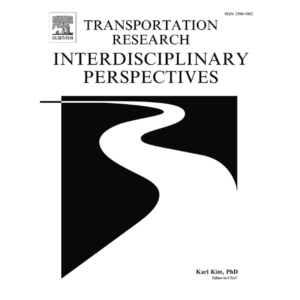The emergence of autonomous driving technologies will transform mobility in the future. Shared autonomous vehicles (SAVs) are crucial elements of sustainable future mobility concepts because they are expected to have a positive impact on urban mobility, infrastructure, travel behaviour and the environment.
Driven by the necessity for sustainable mobility concepts and the prospect of accelerated shared usage instead of private ownership, research on the factors influencing user behaviour (e.g., intention and willingness to use, adoption) has increased. However, knowledge in the emerging field of SAVs is still unstructured and the lack of synthesis diminishes the ability to predict user behaviour and use this knowledge to develop improved mobility concepts.
In order to lay the foundation in this area and to enable the integration of new knowledge with the wider literature, this paper aims to investigate and identify factors that influence the behavioural intention to use SAVs by conducting a systematic literature review following the PRISMA guidelines.
The review aggregates 61 factors influencing willingness and intention to use SAVs, which are grouped into three main categories (user-related factors, service-related factors, time- and weather-related factors). Finally, the review identifies several neglected factors and derives avenues for future research.
 PAVE US
PAVE US PAVE EUROPE
PAVE EUROPE PAVE UK
PAVE UK

